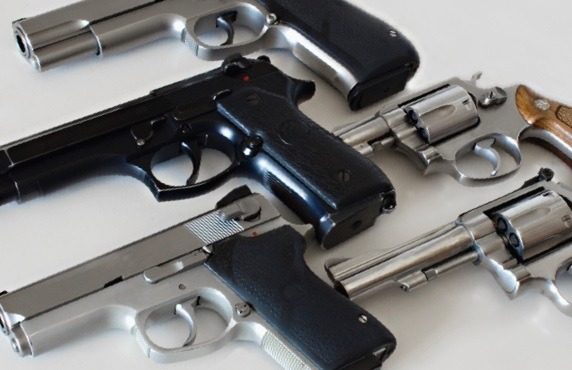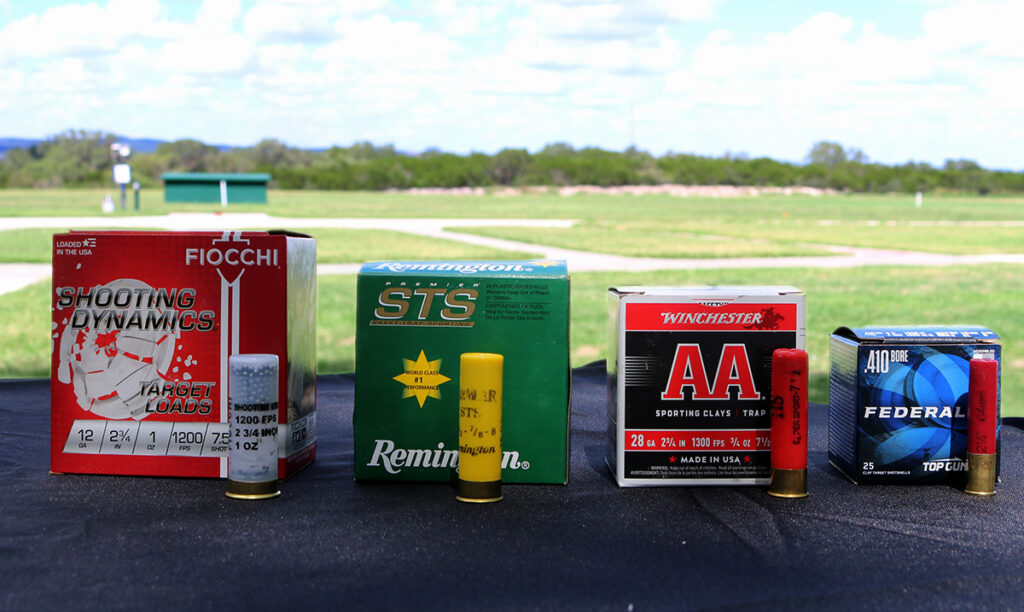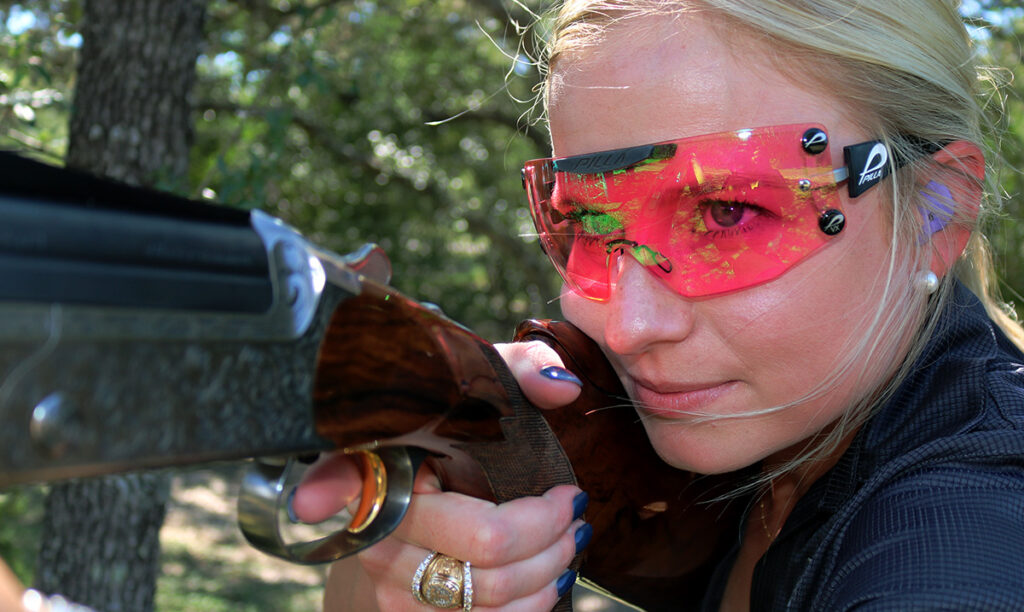
Handgun Sports
There are many different ways to get started in handgun shooting sports. From Precision Bullseye to Action Shooting “Run and Gun” type sports, you will find something you’ll love. So come on out and give them a try!
Action Shooting
Action shooting is a game measuring the speed at which a competitor can hit one or more targets, starting from a position in which the handgun is securely holstered. Targets may be stationary or moving. Action courses vary, often including both scored targets and falling targets within the same match.
Find out more about action shooting from one of our partners below:
United States Practical Shooting Association
International Defense Pistol Association
Silhouette Shooting
Silhouette shooting is a bit different. Think of the old time shooting gallery at the county fair….but on a MUCH grander scale. You’ll be shooting at steel targets shaped like pigs, chickens, turkey…you name it! All different sizes and distances. More on metallic silhouette shooting here.
Scoring is simple: shoot to hit the target off of its stand. If it falls- success! If not….
Find out more about handgun silhouette shooting from:
International Handgun Metallic Silhouette Association
Precision Shooting
In this demanding sport, shooters are permitted to use only one hand while engaging targets at ranges varying from 10 to 50 meters. Scoring is completed using official targets calibrated for point value. Because it is so easy to get started with simple rules and its inherently challenging nature, Precision shooting ranks as one of the most popular recreational uses of the handgun to this day.
Find out more about precision shooting from:
International Shooting Sports Federation
3-Gun Shooting
The reason for the name is somewhat obvious; competitors use three different firearms — a modern sporting rifle (MSR), that is, a rifle built on an AR-platform; a pistol; and a shotgun.
Just as it is with the practical pistol matches, 3-gun simulates combat or self-defense situations. A stage provides a certain scenario for using one or more of the guns in a specific sequence. Each stage is each match will usually be different than any you’ve shot before.
Understanding Handguns Types
From micro-compacts that fit in the palm of your hand to the big bad Desert Eagle seen in dozens of action movies, handguns today offer something for every shooter of every experience level. Like rifles, they can be grouped into two ammunition categories, rimfire and centerfire, and there are several actions to choose from.
Handgun Ammunition types
“Rimfire” and “centerfire” are the terms used to define the type of ammunition a particular firearm uses. While more experienced shooters may toss these terms around loosely and with confidence, the terms warrant a bit of explanation for those new to the shooting sports. Ammunition for the modern rifles and pistols we use fall into one of those two categories, and it’s important to understand the differences between them. Find a more in-depth look at the differences in ammunition types here.
Rimfire
These smaller cartridges in a handheld package serve dozens of purposes: Self-defense, tin-can plinking, serious competition, small-game hunting and pest control to name a few. The world of rimfire rifles is ruled by the .22 Long Rifle (LR), with millions of rounds sold every year. It can be had without breaking the bank, and you can shoot this caliber often for as little as a nickel a round.
What can you do with a rimfire round? This is where the art of plinking is king—paper poking at your favorite indoor range, tin cans on a fence post and balloon popping on an outdoor range are just a few casual pursuits. Ruger’s Rimfire Challenge is where many get their first introduction to competition shooting, and rimfire shooting leagues and matches across the country are administered by the Civilian Marksmanship Program, National Rifle Association, and the American Rimfire Association among others.
Centerfire
There are dozens of popular cartridges available in centerfire handgun rounds, from the tiny .25 ACP to the huge .500 S&W. The ones you’ll see the most—9mm, .38 Special, .357 Magnum, .40 S&W and .45 ACP—rule the world for self-defense and competition, and they’ll also be the easiest on the wallet compared to some lesser-known calibers because they are produced in such volumes. All have multiple bullet designs available, some intended for concealed carry use, some for paper targets and others for steel targets and hunting, and they come in handguns of all sorts of sizes and styles.
Handgun Action Types
Revolver
Going by the nickname “wheelgun” for its revolving cartridge-holding cylinder, the revolver actually has its roots in the days of blackpowder. While the semi-automatic holds the top spot in handgun popularity, a quick look at the offerings from Smith & Wesson, Ruger and others tells you this action type hasn’t lost its luster. There are three types of revolvers: Single-action only (you must cock the hammer every time to turn the cylinder and fire the next round); double-action/single-action (the most popular design, this revolver can be fired with a longer and heavier trigger stroke that cocks the hammer—double-action—or you can cock the hammer with your thumb for a short like trigger pull—single-action); and double-action only (the hammer is either concealed or bobbed so as not to allow it to be cocked with the thumb). Single-actions rule the roost for Cowboy Action, double-singles are great for target, hunting and self-defense and the double-action-onlys, usually found in small-frame “snub-nosed” revolvers, are super choices for concealed carry.
Semi-Automatics
Semi-automatics come in the same three action configurations as a revolver—single-action-only, double-action/single-action and double-action-only—but instead of a cylinder holding the cartridges, a magazine held within the handgun’s grip holds the rounds. There is nothing a semi-auto can’t do. Put the smallest in a pocket holster for self-defense. Cock the hammer on one of today’s hundreds of single-action Colt 1911 variants for competition that varies from precision bull’s-eye and steel target matches to run-and-gun action events like IPSC and 3-Gun. A wide caliber range, economical ammunition choices in nearly every round, and guns that are more and more customizable right out of the box for a perfect fit means there is a pistol out there to suit everyone’s needs and anyone’s hands.
Single-Shots
Single-shots are exactly as the name implies: They hold one shot and only one shot at a time. They break open on a hinge to permit loading. You will find these mostly as small concealed handguns or as very sophisticated and highly accurate competition guns.
Derringer
These are small break-action handguns of over/under design intended for concealed carry self-defense use. They come chambered for rimfire rounds and a wide range of centerfire calibers. Modern production derringers are generally very reasonably priced, and their simplistic design tends to make them very reliable. Antiques can be highly collectible.









